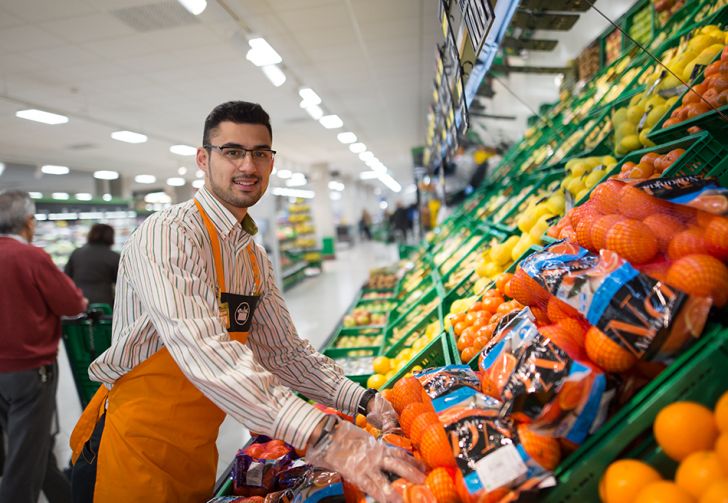In the face of rapid competition and changing consumer demands, these companies are applying the latest technologies to effectively manage inventories. Consider a few vivid examples of innovations from leading European supermarkets.
1. Tesco (United Kingdom)
Innovation:Using artificial intelligence (AI) to predict demand.
Tesco, one of the largest retail chains in the UK, has implemented artificial intelligence systems to improve the accuracy of forecasting demand. They use real-time sales data, analyzing millions of transactions to predict product needs at each point of sale. This allows Tesco to avoid overstock or shortages, reducing costs and improving the availability of goods.
2. Carrefour (France)
Innovation:Implementation of IoT for cold chain management.
Carrefour, one of the leading supermarket chains in France, has invested in the Internet of Things (IoT) to improve cold supply chain management. This allows you to automatically monitor the temperature at all stages of transportation and storage of products, especially perishable. The introduction of such systems has helped reduce losses due to spoilage and optimize fresh food inventory management.
3. Aldi (Germany)
Innovation:Automation of warehouses and inventory management processes.
The German chain Aldi has invested in automated warehouses with robotic control systems. Robots are used to sort and move goods, which reduces processing time and minimizes human error. Automation helps improve inventory control, respond faster to changes in demand, and reduce storage costs.
4th. Sainsbury's (United Kingdom)
Innovation:Using customer data to predict demand.
Sainsbury's actively uses data on the purchases of its customers to predict the demand for goods. Thanks to the use of loyalty cards, they analyze the behavior of buyers and, based on this data, adjust the volume of supply of goods on their shelves. This system helps them avoid excesses and shortages, as well as maintain high customer satisfaction.

5. Lidl (Germany)
Innovation:Integration of blockchain technologies for supply chain tracking.
Lidl, one of the largest supermarket chains in Europe, has implemented blockchain technology to improve the transparency and reliability of the supply chain. This allows Lidl to more effectively control the origin of products, which is especially important for organic products. Blockchain also helps to avoid counterfeiting and improves customer confidence in the quality of goods.
Key Benefits of Inventory Management Innovations
- Cost reduction.Technologies allow you to optimize the quantity of goods in stock, reducing the need for large stocks and reducing storage costs.
- Improving customer service.Demand forecasting and automated systems avoid shortages of goods on the shelves and reduce service time.
- Reduction of losses.The use of IoT and blockchain technologies helps to effectively manage fresh products and control their transportation and storage conditions.
Conclusion
Innovations in inventory management allow European supermarkets to significantly improve the efficiency of their supply chains, reduce costs and provide better customer service. The use of artificial intelligence, blockchain technology and automation helps supermarket chains better predict demand and respond quickly to market changes, making them leaders in this field.
































